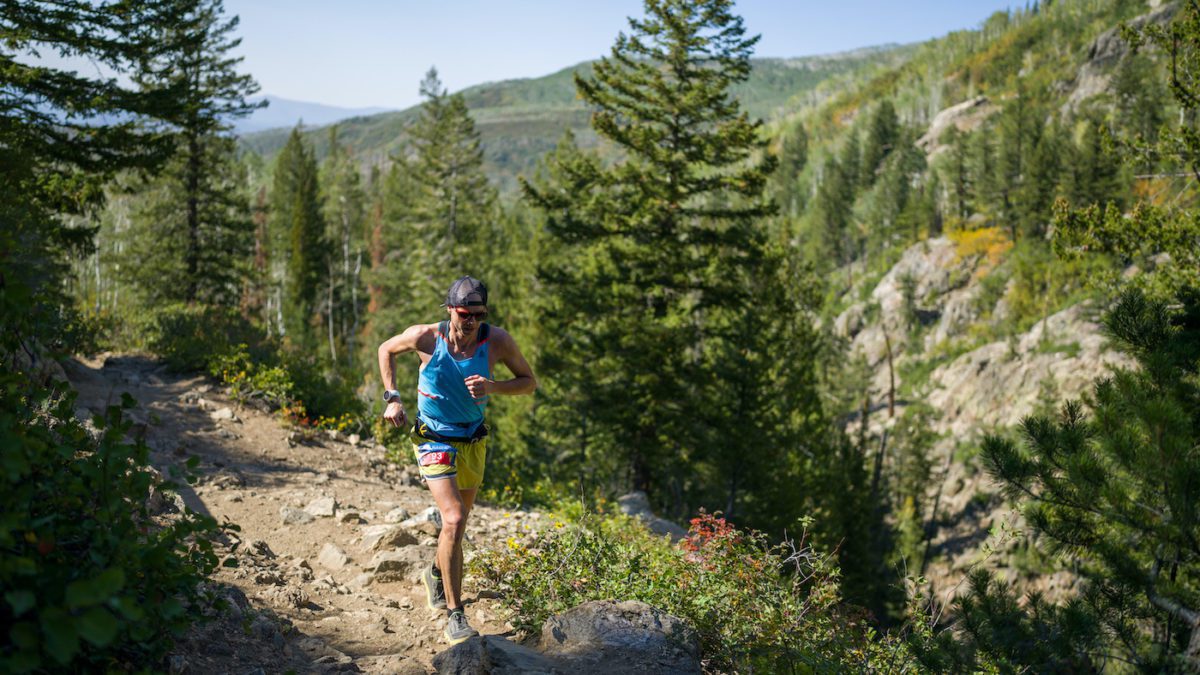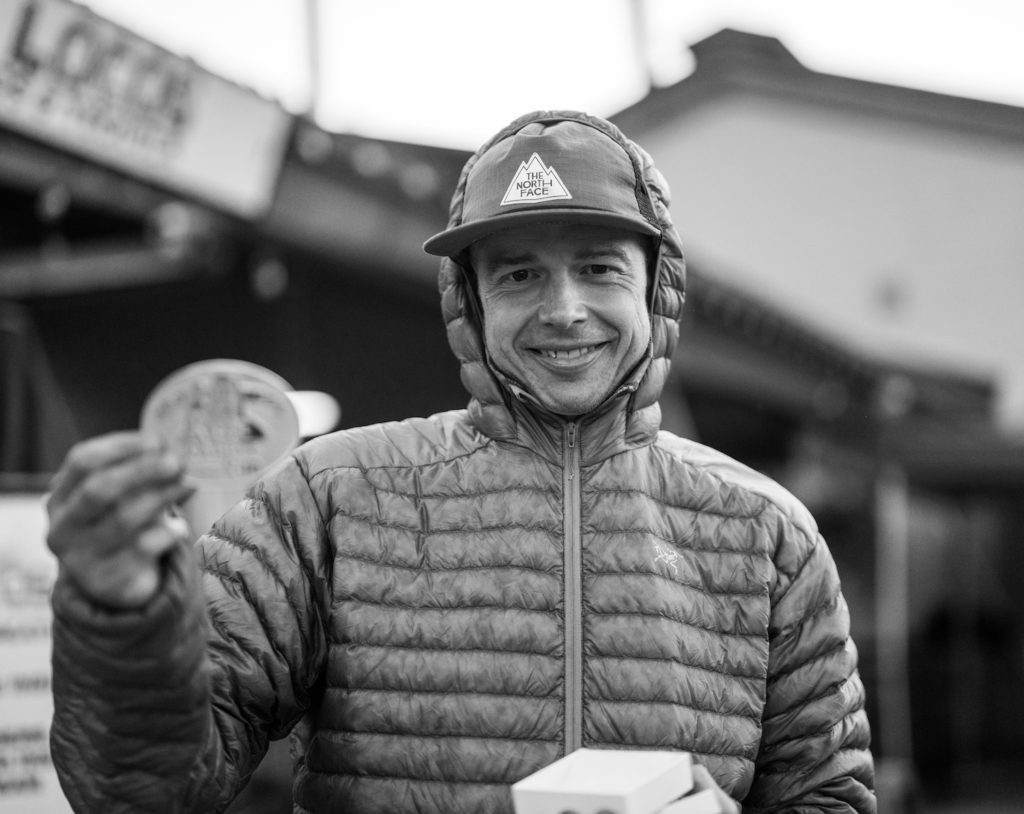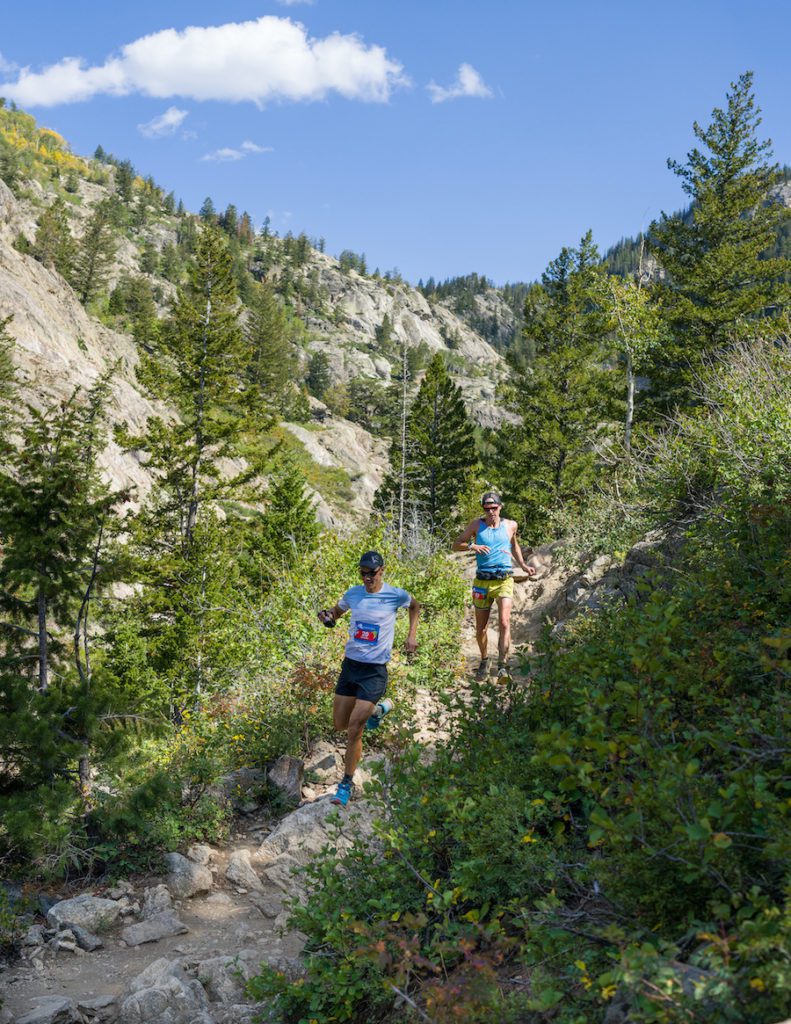Canadians rock at Run Rabbit Run 100-miler
Dave Stevens of Nelson, B.C. won the men's race in Steamboat Springs, Colo., while Alissa St. Laurent of Edmonton was the second female and 10th overall
 Photo by:
Paul Nelson
Photo by:
Paul Nelson
“Everyone’s so fed up with not being able to race that they had a lot of balled-up energy,” says Dave Stevens, 39, of Nelson, B.C., who won the Run Rabbit Run 100-miler in Steamboat Springs, Colo. on Sept. 18 in 18:01:46. That’s his explanation for why so many runners from both sides of the border showed up to race, and why it was so competitive.

It also didn’t hurt that the race has a generous prize purse: Stevens took home USD $15,000 for winning. “Basically all the folks who didn’t go to UTMB to race showed up,” he said.
RELATED: Exclusive interview with UTMB podium finisher Mathieu Blanchard
Anthony Costales of Salt Lake City finished second, in 18:39:51, and Jeff Mogavero of Missoula, Mont. 18:48:00.
https://www.instagram.com/p/CUBOSRMhW9W/
The Canadian women also had an excellent day, with second, fourth and eighth-place finishes. Alissa St. Laurent of Edmonton was the second woman to cross the line (and 10th overall) in 21:01:18, behind Addie Bracy of Boulder, Colo., who won the women’s race in 20:23:53. Emily Caldwell, also of Boulder, was third, in 21:19:18.
https://www.instagram.com/p/CUDD6sqAJxi/
Arden Young of Calgary finished fourth among the women, in 22:39:56, and Jazmin Lowther of Nelson, B.C., was eighth, in 24:41:05. (Young and Lowther went one and two at the 50-mile race at Sinister 7 in Alberta in July, which Stevens also won overall.)
Run Rabbit Run is open to anyone, and no qualifying races are required, but those who choose to register as a “Hare” (as opposed to a “Tortoise”) must abide by some rules: no pacers allowed, and no poles. Also, the cutoff time is shorter (30 hours, as opposed to 36 for Tortoises).
The event was cancelled in 2020 due to COVID.
https://www.instagram.com/p/CUEJhXrs9Yw/
This year’s race was extremely competitive, for all of these reasons. “Not many people register as hares,” Stevens said, “but those who do are fast.
“I did a lot of training. Nelson has some really nice trails that are really steep. I went to worlds [the World Mountain Running Championships] in 2019, and saw how fast everyone was, and it motivated me to train properly after that.” Stevens basically spent most of the pandemic training for this race.

“The game plan was to go out and not let the field fan out, and if it feels good to just push it,” said Stevens. “As much as you can plan in a 100-miler, go to the front and stay there or play it safe and work your way forward. I went out front and just tried not to let anyone overtake me.” Stevens was also motivated by his experience here two years ago, when he got lost several times and ended up with a DNF. “I couldn’t have done it without Anthony Costales pushing me so hard for over 120 km,” he says, also giving major props to his one-man crew, Cameron Wilson.
Stevens is a transplanted Brit who spent three years running up and down mountains in New Zealand before landing in Canada in 2010; he became a Canadian citizen in 2018.


